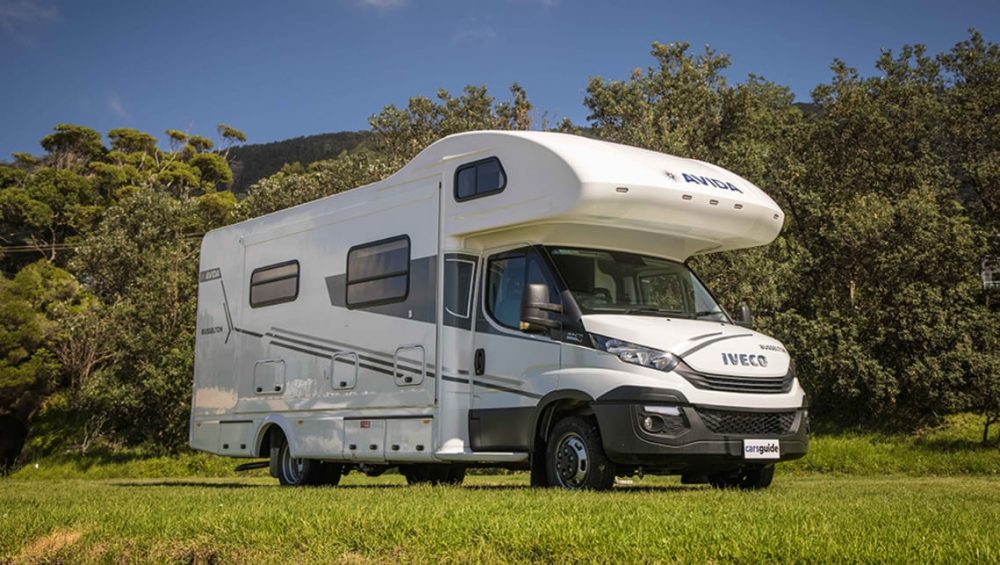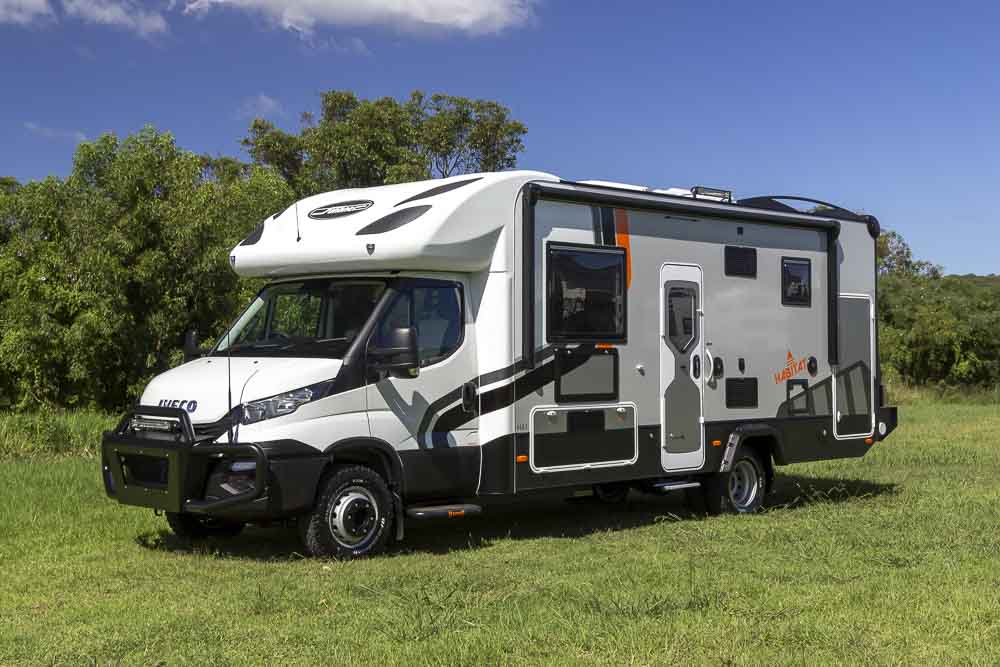Will I Regret Buying a Mobile Home? (The Pros and Cons of a Motor Home)
Are you considering purchasing a mobile home rather than a stick-built home?
Buying a house is a big decision, so it’s important to weigh the pros and cons of owning a mobile home, also known as a manufactured home. This guide details what to expect when purchasing a mobile home and a few reasons why you might or might not regret your decision.

Contents
- 1 Will I Regret Buying A Mobile Home?
- 2 Is It Normal To Regret Buying a Mobile Home?
- 3 Are Mobile Homes A Good Investment in 2022?
- 4 What To Know About Living in a Mobile Home?
- 5 Pros and Cons of Buying a Mobile Home
- 6 Will I Regret Buying a Motorhome for a Short Period of Time?
- 7 What To Consider Before Buying a New Mobile Home
- 8 Buying a Used Mobile Home Checklist
- 9 Is Living in a Mobile Home Trashy?
- 10 So, What Is Wrong With Buying a Mobile Home?
Will I Regret Buying A Mobile Home?
Depending on their specific home and situation, some people do regret buying a mobile home. Buying a mobile home is a good decision for some individuals and families, but it may not be the best decision for others.
Mobile homes can be affordable starter homes for one or two people or small families. However, they don’t tend to hold their value as well as other types of homes. Therefore, you may end up losing money instead of gaining it when you’re ready to sell.
Is It Normal To Regret Buying a Mobile Home?
It’s never certain that you’ll be happy in your home, no matter what type of home it is. Whether you’ll regret buying a mobile home depends mostly on how well it serves you.
For example, homeowners who want to sell their mobile home after a couple of years might be disappointed in its depreciated value if the housing market remains about the same as when they bought it. Couples who decide to start a family could find that their mobile home can’t keep up with their growth.
If you are happy with your home and it fits well into your budget and lifestyle, it’s unlikely that you’ll feel regret over your purchase.
Are Mobile Homes A Good Investment in 2022?
Many real estate and financial experts agree that housing prices will continue to rise through 2022, even if modestly. That trend could make the thought of owning a mobile home as a primary residence or investment property even more appealing to some.
Mobile homes are generally affordable for owners, even as traditional home prices remain higher than usual. People looking for a starter home or a first-time investment property could have an easier time budgeting for a mobile home than a stick-built home.
What To Know About Living in a Mobile Home?
Before you buy a mobile home, you should know a few key points about them:
- Size: Mobile homes are generally smaller than stick-built homes, so there may be less space for you and your family to spread out in your house.
- Maintenance: Mobile home maintenance differs from stick-built home maintenance. For instance, most mobile home roofs need annual or semi-annual resealing. Consult with your home’s manufacturer to get a recommended maintenance schedule.
- Upgrades: Mobile homes often include smaller windows, doors, and even bathtubs than traditional homes. Therefore, upgrading can sometimes prove challenging. Consider working with contractors who specialize in mobile home renovations for the best results.
Pros and Cons of Buying a Mobile Home
Like any type of home, mobile homes come with several pros and cons.
Pros
- Affordability: Mobile homes are generally much more affordable than stick-built homes, making them excellent options for starter homes. Lower costs occur mostly because of the materials and building processes manufacturers use to make them.
- Quick Construction: Manufacturers can build mobile homes in several weeks compared to the months it typically takes for construction workers to build a stick-built home.
- Easy to Maintain: Mobile homes are smaller than many stick-built homes and, therefore, won’t have as intense maintenance needs.
- Semi-Permanent: Although they’re not necessarily simple to move, you can move or remove a mobile home easier than a stick-built home. If you’re ready to upgrade your home, you can move the mobile home to a new location to make room for building.
- Energy Efficiency: According to FreddieMac, many modern manufactured homes include energy-efficient appliances and construction, helping you save money and conserve energy.
- Factory-Built: Manufacturers build mobile homes in factories. The houses and builders don’t experience delays or problems stemming from outdoor elements in this controlled setting. Therefore, building usually stays on schedule without facing potential environmental hazards.
Cons
- Depreciation: Mobile homes are usually considered personal property rather than real property, so their value lowers faster than stick-built homes. A mobile home is more similar to a vehicle than a home in terms of property.
- Resale Value: A quicker depreciation can make selling a mobile home more challenging than a stick-built home. However, the law may consider some mobile homes real property if attached to the land you own, such as with a foundation.
- Financing: Mobile homes that are personal property could have higher interest rates and shorter financing terms than stick-built homes. You may need to conduct in-depth research to find a loan for your home.
- Park Rules: If you place your mobile home in a mobile home park, you’re subject to the park’s rules. These could include refraining from making any noise that neighbors could consider disturbing and keeping up with basic landscaping requirements.
- Space: Mobile homes usually have less square footage than many stick-built homes. While they could fit a couple or a small family, they might not provide enough space for mid-size families.
Will I Regret Buying a Motorhome for a Short Period of Time?
A motor home differs from a mobile home in that it’s an even more temporary living solution. A motor home combines the convenience of a moveable vehicle with the comfort of a home, allowing the owner to travel as they please.
You might consider buying a motorhome for a short period as you save for more permanent housing, like a mobile home or stick-built home. However, you could end up losing money in the process, which might cause regret.
Motor homes lose value quickly, with a large chunk of depreciation occurring as soon as you drive it off the car lot. You’ll also spend money on RV hookup spots that give you electricity and running water. That’s money that you could put toward a down payment on a home instead.
What To Consider Before Buying a New Mobile Home
Purchasing a new mobile home is a big step. Prepare yourself by considering the following:
Available Financing
Mobile homes usually need different loans than stick-built homes unless your mobile home is attached to the property. If you’re buying a home to put on land you own, you’ll likely need a loan specifically for a mobile home, which tends to be more similar to a vehicle loan than a home loan.
Check lenders in your area to learn more about your options. Some homeowners may also be eligible for U.S. Department of Housing and Urban Development (HUD) financing for manufactured homes.
Additional Costs
Mobile homes may come with costs in addition to the house itself, including:
- Upgraded amenities or features
- Land purchase or community rental
- Taxes
- Delivery fees
- Property insurance
- Financing and closing costs
Make sure that the price of your home doesn’t exceed or come close to the top end of your budget so that you can account for additional costs.
Features
When buying a new mobile home, you can work with a manufacturer to include the features and layout you’d like. However, getting a custom home can be pricey compared to buying a mobile home that’s already made or uses a default design. Still, the costs might be worth it to you to get the size and amenities you and your family need.
Insuring Your Home
Many insurance companies have protection specifically designed for mobile homes. Compare companies and plans before purchasing your home, as you’ll need a plan in place once your home arrives on your lot.
Insurance.com states that mobile home insurance costs, on average, $300-$1,000 a year, but your cost may vary depending on your location and the plan you choose.
How Delivery Works
Planning for your mobile home’s delivery is a crucial part of the process. You’ll need to make sure your land is secure and cleared for delivery and that it’s prepared for necessary utility hookups.
Your municipality might also require permits for your home, so consider connecting with a local contractor to help you navigate the process and requirements.

Buying a Used Mobile Home Checklist
When buying a used mobile home, there are a few points to consider to ensure that you’re getting the best home for your money.
Know the Law
First, understand what your local laws and community rules say about a used mobile home.
Only a handful of states require its towns to allow mobile homes to move to single-family residence zoning areas. Mobile homes must go only on lots zoned for them in some towns. Also, a mobile home community may have restrictions on the age of dwellings allowed on its lots.
Inspect the Home
You should enlist the help of an inspector to check the home thoroughly before buying it. An experienced mobile home inspector will know to look for signs of water damage from leaks and cracks, which can be detrimental to the overall safety of your home. They’ll also check for foundation, roof, electrical, and other problems that could require costly repairs.
Remember to Check Underneath
What’s under a mobile home is as important as what’s inside. Looking under the mobile home can help you detect leaks, tears, and foundation damage that lead to water damage, structural issues, and other problems affecting the integrity of your home.
Decide If You Can Make Necessary Repairs
Are there repairs that you need to take care of quickly after buying the home? Determine whether these are in your budget. If so, don’t delay repairing them, as some problems could make it more difficult for you to insure your home and lead to worse problems later.
Plan the Move
If you’re moving a used mobile home to a new location, take time to plan the move. Consider using a full-service moving service to disconnect, reconnect, and move the home, unless you can safely do so yourself. Have all local permits ready to go, if necessary.
Is Living in a Mobile Home Trashy?
Living in a mobile home isn’t trashy.
Unfortunately, some people have a misconception of mobile home living. However, when maintained properly and kept clean, a mobile home can give homeowners an affordable, comfortable, and respectable place to live.
So, What Is Wrong With Buying a Mobile Home?
The primary downside of buying a mobile home is that its value depreciates quicker than a stick-built home. However, if you’re not concerned about the home’s resale value, then this won’t be much of a problem for you.
